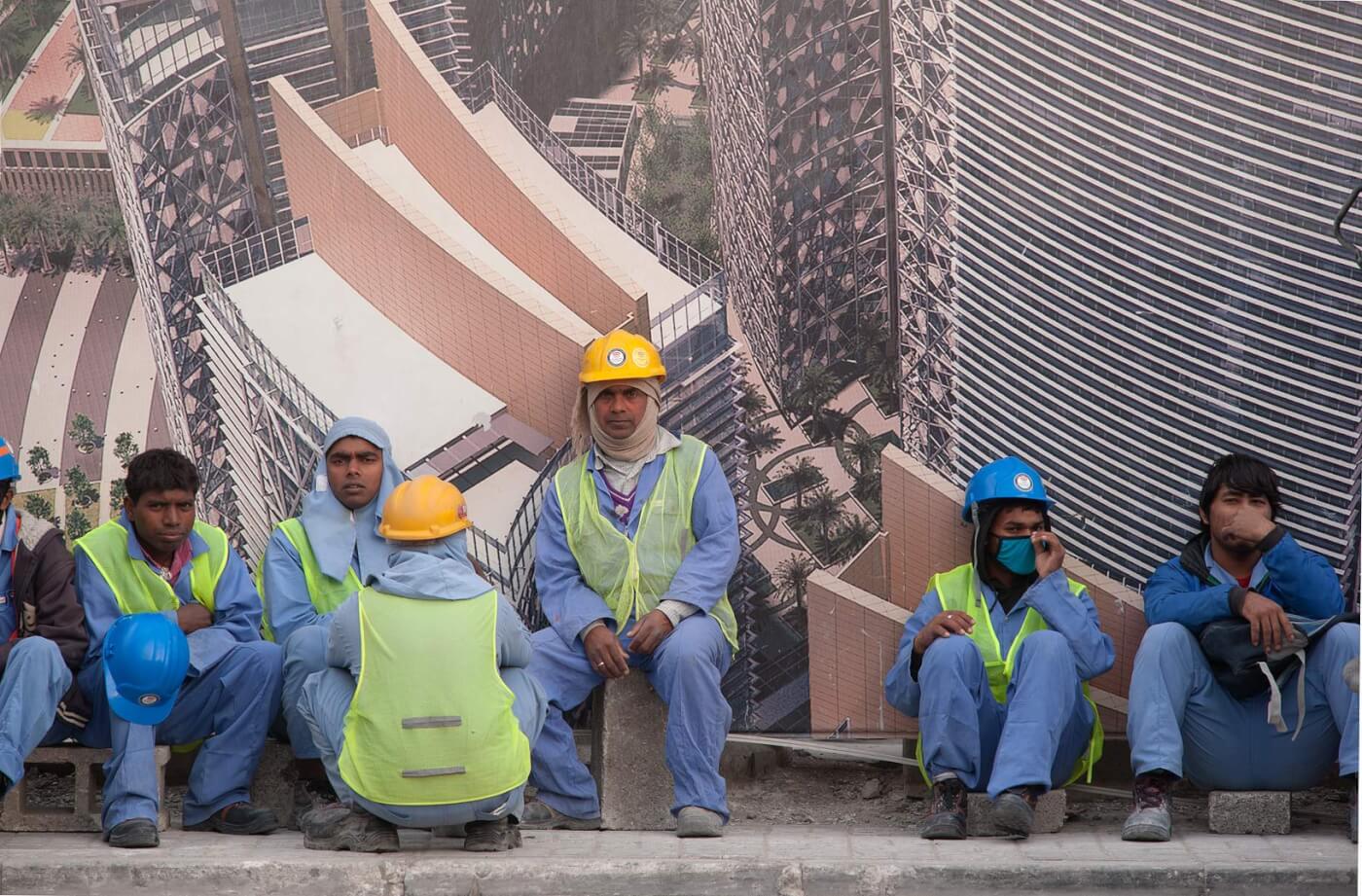The latest development surrounding human rights abuses of migrant workers employed to build Qatar’s FIFA World Cup stadiums has seen Pakistan take up worker payment issues with Qatar. The Pakistan Embassy in Doha has raised the case of large numbers of Pakistani workers going unpaid with Qatar’s Ministry of Labor.
Pakistan’s Foreign Ministry spokesperson Aisha Farooqui was keen to emphasise that the talks had been productive, saying:
“The labor minister has also assured of his support in the resolution of such cases,”
The Qatari authorities are accused of stopping payments to a few companies working on the World Cup stadiums, including Descon, a Pakistan-based multinational company that had supplied large numbers of labourers to Doha.
Kashif Ahmed, director-general of the Bureau of Emigration and Overseas Employment, said:
“Descon got many Pakistani laborers employed but some of these individuals started facing salary issues”
“We also received more complaints related to these payments after the coronavirus outbreak. We have been working with the host government, employees of the company and the employers to deal with the issue,” Ahmed added.
The news follows a recent investigation by Amnesty International which similarly exposed that Qatar Meta Coats (QMC), a company involved in building one of the tournament’s “crown jewel” stadiums, had left 100 migrant workers unpaid for up to seven months.
In response to the Amnesty investigation the Qatar communication office insisted that:
“The government has made significant progress in recent years to reform the country’s labour system. There are still issues to overcome, including those related to the attitudes and behaviours of a small minority. This will take time, but we remain firmly committed to the task.”
However, human rights organisations have criticised progress for being too slow. The Qatar authorities outlawed the much maligned kafala system – which saw workers tied to ‘sponsors’ – but there is mounting evidence that the situation for Qatar’s migrant workers has not significantly improved as a result.
The QMC employees only got paid recently following the Amnesty investigations and media reports despite the authorities admitting they first learnt about the payments as early as June 2019. Situations like this demonstrate that, in practice, the Qatar government’s commitment to workers’ rights is not as strong as it would seem from their statements
In 2018, questionable news surfaced about Mercury MENA, another Qatar-based company contracted to build Lusail City, in the capital Doha. Amnesty reported that it had failed to pay a number of workers due to “cash flow problems”. Year after year, more abuses and the same excuses prove that progress on workers’ rights is not being addressed quickly enough by the Qatar authorities.
FIFA has also faced criticism for not doing enough to hold Qatar to account.
The mass abuse of migrant workers was comprehensively covered in the documentary Trapped in Qatar by investigative journalist Benjamin Best. The film exposed how Nepalese migrant workers were being exploited in Qatar, which ultimately led to hundreds of the overworked workers dying.
The Nepalese government has confirmed that 1,400 of their citizens have died working on World Cup infrastructure in the last six years.
Speaking to IOHR, Benjamin Best said:
“No one wanted to show their faces to me because they were all scared. Scared of their bosses, scared something might happen to them, scared they would face some kind of the punishment”
According to Mr. Ahmed, around 150,000 Pakistani nationals are currently working in Qatar. In 2015 the Qatar government promised their Pakistani counterparts 100,000 jobs relating to World Cup projects, which directly saw 80,000 Pakistanis sent to the country.
Pakistani labourer Qadir Bakshi, who had been working on a World Cup infrastructure project for the past three years, had his contract terminated when he chased his company for three-months-worth of delayed salary payments.
Speaking to Arab News, Qadir Bakshi said:
“When we sent messages to the Qatar government’s helpline, the company terminated our services. They fired a total of 18 people from a single project and asked us to go back to Pakistan or search for another job in the Arab country.”
The delayed payments left Qadir unable to buy food, having enough money to return to Pakistan was completely out of the question.
One of the major criticisms of the kafala system was that workers were unable to leave the country or move freely without their employers permission. The example of Qadir illustrates how, in practice, it is still almost impossible to return home without the support of an employer or the Qatar authorities.
Qadir detailed the support his embassy provided but he expressed the frustration many are facing with the outbreak of the pandemic:
“The Pakistani Embassy gave us food packages in Ramadan that we are still using. Our company asked us to search for another job, but no one is employing us due to the pandemic.”
At least 1,400 migrant workers have died in the decade since Qatar won their World Cup bid. Unless the authorities double down on their efforts to enhance workers’ rights, this number will only rise and remain on target to meet the grim estimation made by the International Trades Union Confederation (ITUC), which predicted the total death toll would reach 4,000 by the time the World Cup has begun in 2022.
Watch IOHR speak to Benjamin Best about Trapped in Qatar :

